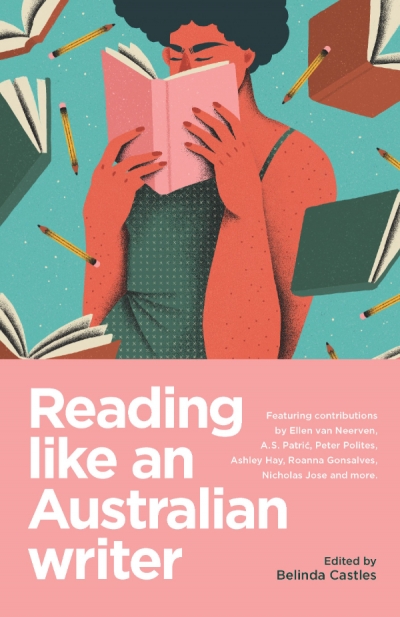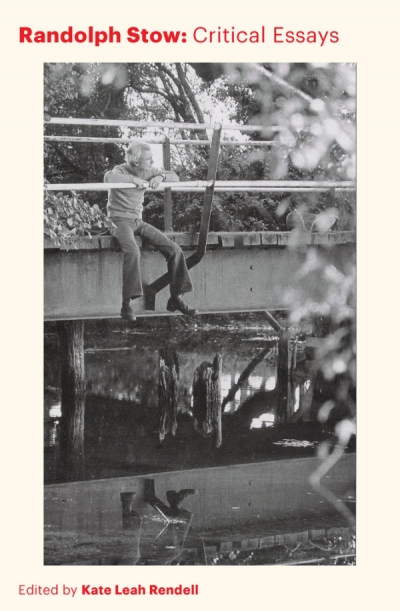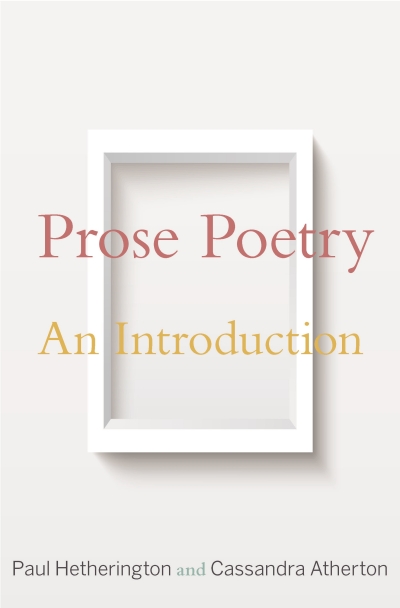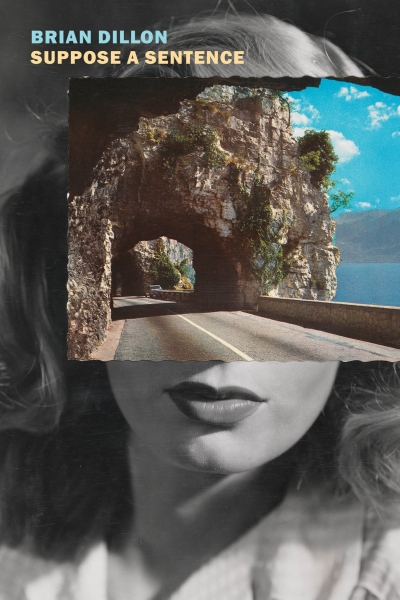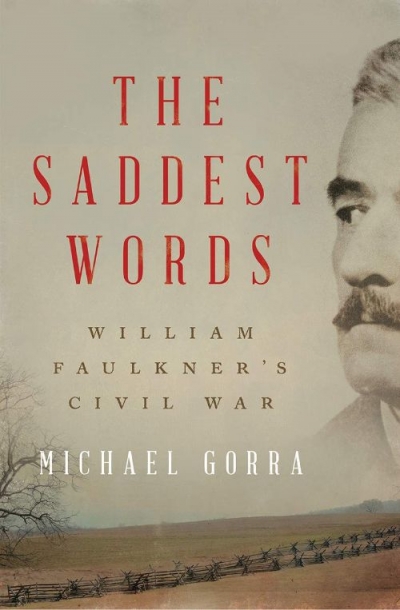Literary Studies
‘When I first began reading Nam Le’s Love and honour and pity and pride and compassion and sacrifice, I was sceptical: a story about a writer writing a story? A writer at the Iowa Writer’s Workshop, no less? Isn’t this a little self-indulgent? Hasn’t this been done before?’
... (read more)‘Land isn’t always meant to be grasped any more than art is, or dust,’ writes Michael Farrell in the arresting opening sentence of the first essay of Kate Leah Rendell’s Randolph Stow: Critical essays. Stow’s writing shows just how provisional meaning and territoriality can be, and the statement is a fitting beginning to a new book about his work.
... (read more)Prose Poetry: An introduction by Paul Hetherington and Cassandra Atherton
It speaks volumes that almost a century and a half after Baudelaire’s Paris Spleen announced the modern prose poem, James Longenbach influentially defined poetry as ‘the sound of language organized in lines’. An otherness, bordering on illegitimacy, pervades what Cassandra Atherton and Paul Hetherington argue is ‘the most important new poetic form to emerge in English-language poetry since the advent of free verse’. The book vindicates this claim. No less compelling, however, is the way the prose poem, long defined in negative terms, here becomes the whetstone over which old assumptions – about the prosaic, the poetic, and the daylight between the two – are run to a fresh sharpness.
... (read more)The Artful Dickens: The tricks and ploys of the great novelist by John Mullan
‘What is so good about Dickens’s novels?’ It is a question ‘oddly evaded by many who have written about him’, in John Mullan’s reckoning. ‘Gosh he is good – though so careless,’ Iris Murdoch wrote to Brigid Brophy in 1962. Many writers before and since have found Dickens not only improvisatory and self-indulgently digressive but also sentimental, melodramatic, and sermonising – a great entertainer rather than a good writer. Mullan undertakes to demonstrate that what appears to be carelessness is as often as not ‘technical boldness and experimental verve’. Composing ‘on the wings of inspiration’, in response to the exigencies of serial publication, Dickens essentially revised as he wrote. Yet, consulting the manuscripts of the novels, Mullan notes how meticulously he adjusted his diction and phrasing. Like Oliver Twist’s companion in crime, the Artful Dodger, who comes alive through his sleights of hand and language, the Artful Dickens is a magician in prose and a talented conjurer: ‘his feats of legerdemain might equally apply to his writing’.
... (read more)Take Arms Against a Sea of Troubles: The power of the reader’s mind over a universe of death by Harold Bloom
Harold Bloom died in 2019 at the age of eighty-nine. Always prolific, he continued working until the very end. Throughout his final book, he digresses at regular intervals to record the date, note his advanced age, and allude to his failing health. At one point, he reveals that he is dictating from a hospital chair.
... (read more)A Swim in a Pond in the Rain: In which four dead Russians give us a masterclass in writing and life by George Saunders
‘I consider myself more a vaudevillean than a scholar,’ George Saunders writes cheekily in his introduction to this collection. Yes, he is indeed a professor of creative writing at Syracuse University in upstate New York, a Booker Prize-winning novelist, and a regular in the pages of the New Yorker, but in A Swim in a Pond in the Rain he is first and foremost a vaudevillean: in seven short acts he sings, dances, and acts the comedian. According to Martin Amis, ‘all writers who are any good are funny’, even Kafka and Tolstoy, and he has a point. Saunders may not be quite vicious enough to qualify as ‘any good’ in Amis’s terms, but he is at least unfailingly sharp and good-humoured.
... (read more)In one of the indelible memories of my life, I take in a room drained of sunlight – late afternoon, early evening – and the blotchy font of a 1990s Picador paperback edition of Michael Ondaatje’s The English Patient. I feel a slipping sentence: ‘In the kitchen she doesn’t pause but goes through it and climbs the stairs which are in darkness and then continues along the long hall, at the end of which is a wedge of light from an open door.’ The words move and there is movement and ‘a buckle of noise’ and ‘the first drops of rain’.
... (read more)Only Happiness Here: In search of Elizabeth von Arnim by Gabrielle Carey
How could she write happiness so well? For Gabrielle Carey, this is the driving question in her search for Elizabeth von Arnim (1866–1941), an Australian-born writer of more than twenty bestselling satirical novels who married a German count and then an English lord, bore five children, lived all over Europe, and hosted the British intellectual and literary élite at her Swiss chalet. Von Arnim’s novels are still available in many editions. A literary celebrity in the early twentieth century, she retains a loyal readership but has been largely forgotten by literary history. After losing ‘faith in the very idea of happiness, let alone the pursuit of it’ in a deep personal crisis, Carey turns to von Arnim as a guide to restore her faith, following the author’s dictum that happiness is ‘attainable by all except the unworthy and deluded’.
... (read more)Besides a capacity to write well, critics need to be well-informed. I sometimes get exasperated by reviewers without sufficient expertise in the topics they are considering. On the other hand, academic pedantry can also be off-putting, particularly when couched in a clunky style. In general, I’ve found the most memorable pieces to be those which say something about the reviewer as well as the author under review, like portraits which work through a kind of double vision, offering insights into the painter as well as the sitter. There was a very good essay on Les Murray by J.M. Coetzee in the New York Review of Books a few years ago which had this double-edged quality.
... (read more)The Saddest Words: William Faulkner’s Civil War by Michael Gorra
André Gide, when asked who was the greatest French poet, is said to have replied ‘Victor Hugo, alas’, and many readers have responded in similar fashion to William Faulkner’s place in the history of the American novel. Werner Sollors, the eminent Harvard scholar of American Literature, unambiguously described Faulkner in 2003 as ‘ultimately the most significant American novelist of the [twentieth] century’, a judgement echoed in this book by Michael Gorra, who calls him ‘the most important American novelist of the twentieth century’. But Faulkner’s marked proclivity for both stylistic excess and thematic incoherence has always made him a difficult author to appreciate and study. Hence Gorra’s The Saddest Words, a judicious and measured blend of biography, contextual history, and travelogue, performs a signal service in making this complicated author more accessible to a wider reading public.
... (read more)
